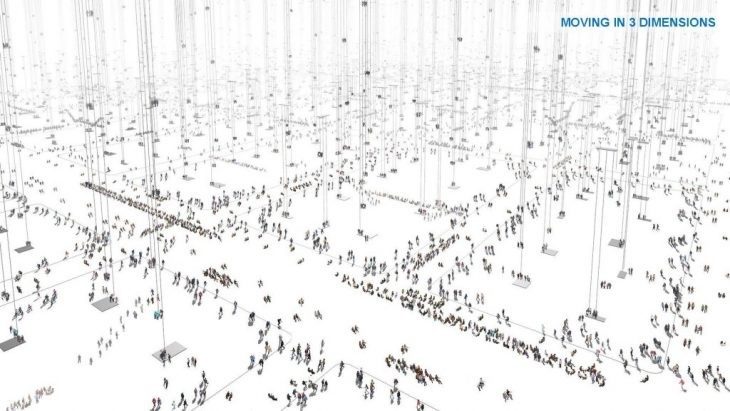Master in City & Technology 2019/20 – Term II
Studio Name: Internet of People
Faculty: Luis Falcon
During the studio students will investigate the ways in which the role of the citizen can be transformed from a consuming agent in the city into a generating agent by becoming active participants in the utilization & production of data.

from: 911 architecture @Audi Urban Future Initiative
Context & Agenda
Artificial Intelligence is for the Digital Industry what the Assembly Chain was for the Fordist one. The automation of data processing is disrupting the ways industries, companies and people unfold on cities [1]. While private agents are speeding up digital processes focused on improving their product or services, current strategies of the most advanced cities are facing an urban transformation where people’s participation is becoming a key factor. People’s participation is understood here as the capacity of citizens to take part of a decentralized process of decision making [2].
Urban policies on the digital age are primary based on the design of Processes. These processes might evolve all agents in the urban decision making. Furthermore they should be able to adapt rapidly to changes or mistakes on previous decisions. Cities behave as an organism and their development and set of rules should integrate the same level of dynamism that contemporary events push up to them.

from: Studio Schwittala, Berlin @Audi Urban Future Award 2014
Site: Barcelona
The studio will be focused on the city of Barcelona. So the final project (process) to be proposed will take Barcelona as a battlefield.
Two Global Challenges:
The studio is going to face two global challenges as the main topics to be focused on:
The first one is the global growth of the middle class. In February 2017, The Brookings Institution published a report on ‘The unprecedented expansion of the global middle class’. It claimed the middle class will represent by 2030 the 60% of the total population, compared to today’s 30%. This means that every year it will grow at an average of 160M people or a yearly 4%. This is directly correlated with the expected global tourism yearly growth: 4% [3]. The society in 2050 will be fully urban, but even further, it will be globally mobile.
The second is what Richard Florida first pushed to cities to attract in: talent [4]. And after he realized that the digital revolution is making IT talent coming into cities (very attractive places to live), rising up was important social urban problems he stepped back[5]: gentrification.
[1] Falcón, L. 2018. ‘Cities: networks of trust’. Unpublished.
[2] Bolychevsky, I. 2019. ‘There’s more to decentralisation than blockchains and bitcoin’.
https://medium.com/@shevski/how-decentralised-are-you-a6539eeb27ff
[3] UNWTO. World Tourism Organization.
[4] Florida, R. 2012. ‘The Rise of the creative class’.
[5] Florida, R. 2017. ‘The new urban crisis’.
